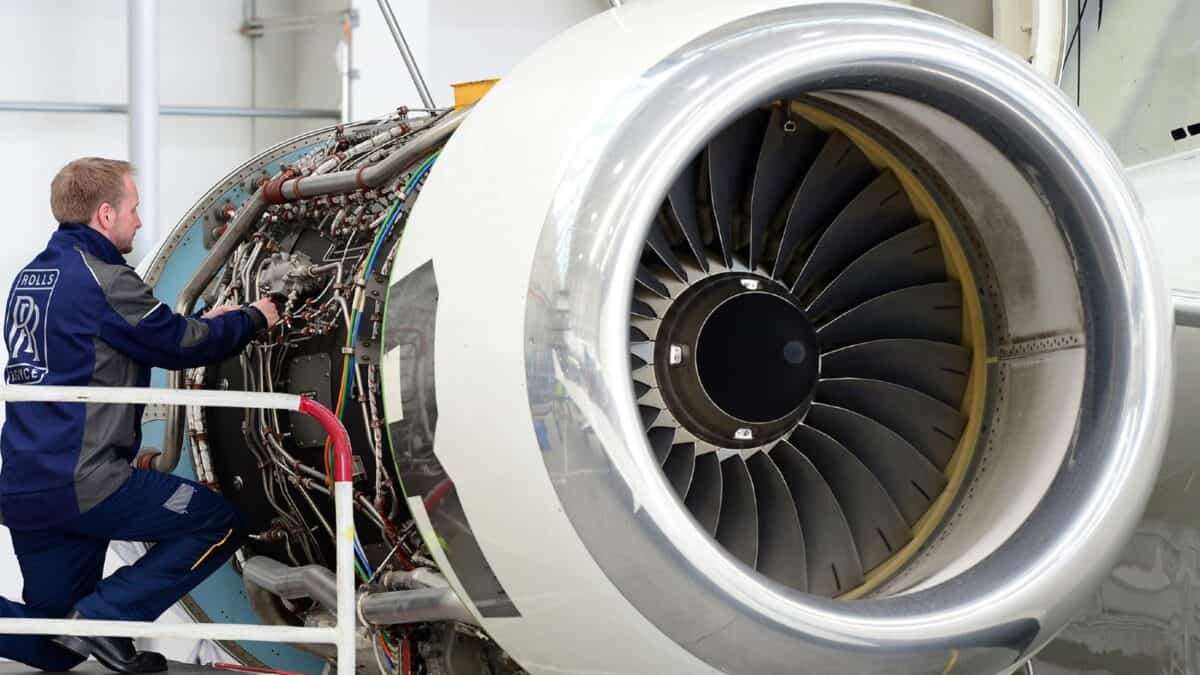Image source: Getty Images
Five years ago, easyJet (LSE:EZJ) shares were about to fall out of the sky as Covid-19 brought travel restrictions and disruption. Travel demand has recovered well since then, but the stock has not.
The share price is still 60% below its pre-pandemic levels, meaning a £10,000 investment made five years ago has a market value of £3,958. But with the business making progress, is the stock a bargain?
Recovery
The recovery in easyJet’s business is clear from its income statement. With the return of travel demand, the company’s revenues have bounced back and are now well above pre-Covid levels.
easyJet revenues 2015-25

Created at TradingView
The balance sheet, however, is still an ongoing project. The company’s total debt stands at £3.9bn, which is three times where it was in 2020 and limits the firm’s flexibility if demand drops.
It’s also a lot in the context of a business that generates £597m in operating income each year. And £130m of that gets spent on making interest payments on its outstanding loans.
Despite this, easyJet’s operating income has actually recovered quite impressively. While this is being weighed down to some extent by higher borrowing costs, it’s roughly back to 2020 levels.
easyJet operating income 2015-25

Created at TradingView
The trouble is, the company’s share count is also a lot higher than it was in 2020. Instead of 397m shares outstanding, there are now 759m – an increase of around 91%.
That means the impressive operating profit has to be divided by almost twice as many shares. And this – along with a weaker financial position – is why the stock is well below where it was five years ago.
Outlook
In order to reduce its outstanding shares, easyJet is going to have to buy them back. But having issued them at low prices, repurchasing them could look quite ugly.
As a result, the firm has moved to reinstate its dividend as an alternative way of returning cash to investors. I think this is a good move – and there’s more for investors to be positive about.
The company has made some progress in bringing its debt level down. And if it can keep doing this, interest payments should be lower and profits should rise over time.
This formula has worked for Rolls-Royce over the last couple of years and it doesn’t take much imagination to think it could work for easyJet as well. But the longer it takes, the riskier it becomes.
Outside shocks – such as pandemics or Icelandic ash clouds – can be impossible to predict. But they do happen and it’s important for airlines to be in a strong position to meet them when they do.
At the moment, easyJet is still working its way through a significant amount of debt. And until it manages to do this, I think it’s unusually vulnerable in the event of a downturn.
Long-term investing
Investors buying easyJet shares during the pandemic might have expected things to go back to normal pretty quickly. But while revenues and operating profits have recovered, the share price hasn’t.
The reason is the firm’s balance sheet and share count are still a long way from where they once were. And these long-term concerns are enough to put me off the stock at the moment.
Credit: Source link













